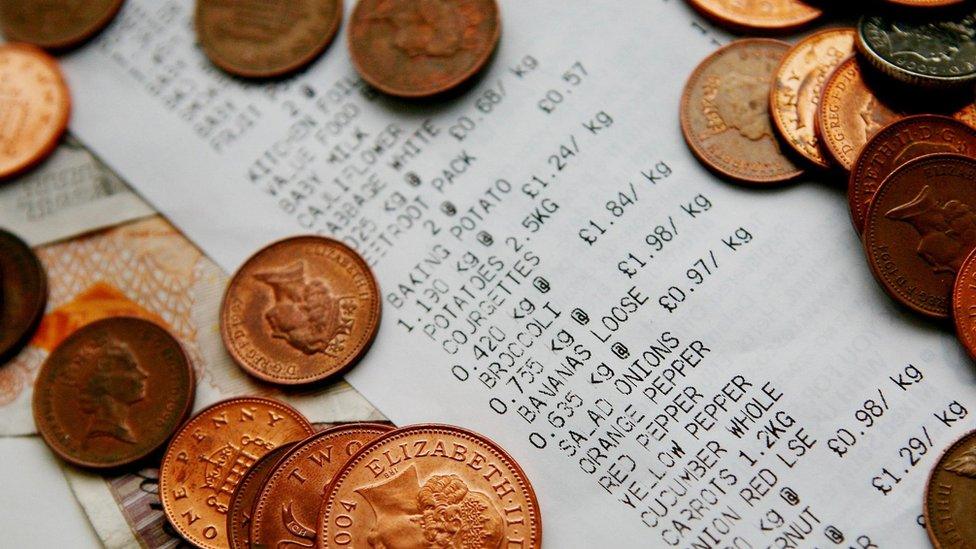Britons 'misunderstand and distrust economics data'
- Published
- comments

People had a reasonable grasp of what inflation means, but were very confused about Gross Domestic Product.
Many Britons have a limited grasp of economic concepts, and distrust official data such as the unemployment rate or the deficit, a study suggests.
People tend to look at economics through their personal experience, a report funded by the Office for National Statistics (ONS) has found, external.
The survey found people were interested in the economy and regretted their inability to fully understand it.
The report said that communication of data and concepts could be improved.
Groups such as politicians and the media communicate economics concepts in a way that many people find confusing, researchers at the Economic Statistics Centre of Excellence (ESCE) think-tank found.
People expressed disillusionment about the economy, seeing it as an external negative force outside their control.
The survey of 1,665 people, conducted online and in focus groups, found that participants felt "smacked in the face by the economy" and saw it as a threat "constantly hanging over us". It led to a distrust of data, and belief that politicians twisted figures to suit their own points of view.
That distrust was in part due to a general misconception that economics data is collected and measured by the government. In fact, the data is collected by the ONS, an independent body. People thought, wrongly, that the government massaged that underlying data to suit its agenda.
This fed into a widely held view that the unemployment and inflation rates are higher than those presented on the news, the ESCE found.
The misconception partly stems from a misunderstanding of what these rates mean, the think tank said. The unemployment rate is about people who don't have a job, but who have been actively looking for work.
But people tend to think this data is about everyone who doesn't have a job, which is a far higher percentage of the population.
Confusion
In general, people have a fairly good idea of what inflation is, especially related to price growth. But many people have a simplistic view of how inflation is calculated, and of how data are collected.
People tend to think inflation is based on a very simple basket of goods, where in fact a wide number of goods and services are taken into account.
There is a misconception that council tax and housing costs are not included, when in fact they are in some measures.

People tend to view economic data through their own personal experience, the report says.
Less than half of people were able to correctly identify Gross Domestic Product (GDP) as being the value of goods and services produced in a country. GDP growth is measured over a certain time period.
Typically people confused GDP with the value of exports. Net exports are a part of GDP, external, but household spending is by far the biggest part, with investment and government spending also important.
People also got confused about acronyms, mixing up GDP with GBP (Pound sterling) and even GDPR (data privacy law).
The extent to which people trusted economics data, and how much they understood it, depended on factors including their education level and socio-economic group, the report said.
The ONS said: "This report raises some interesting questions and highlights the challenges all communicators face when explaining complex economic concepts."